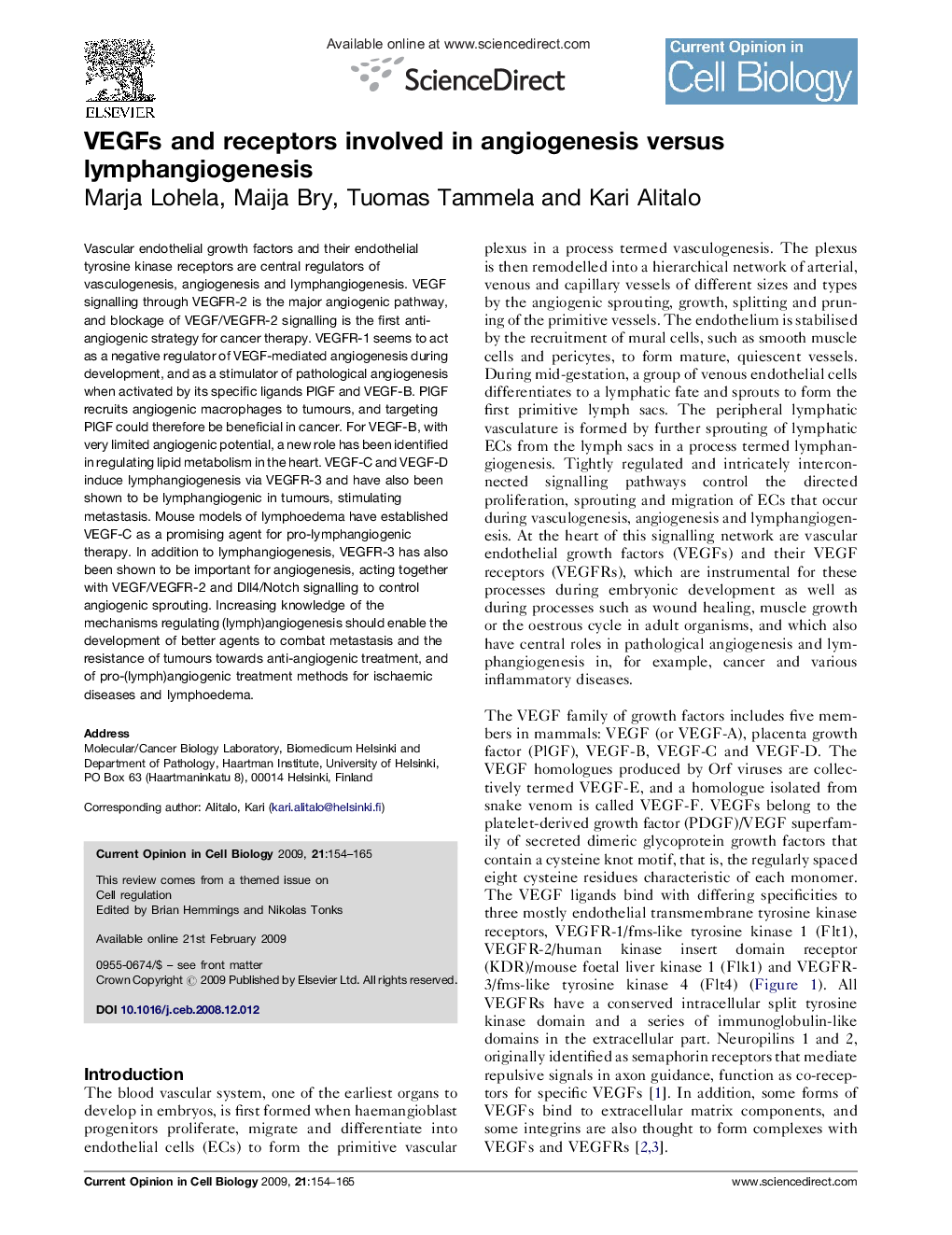| Article ID | Journal | Published Year | Pages | File Type |
|---|---|---|---|---|
| 2169925 | Current Opinion in Cell Biology | 2009 | 12 Pages |
Vascular endothelial growth factors and their endothelial tyrosine kinase receptors are central regulators of vasculogenesis, angiogenesis and lymphangiogenesis. VEGF signalling through VEGFR-2 is the major angiogenic pathway, and blockage of VEGF/VEGFR-2 signalling is the first anti-angiogenic strategy for cancer therapy. VEGFR-1 seems to act as a negative regulator of VEGF-mediated angiogenesis during development, and as a stimulator of pathological angiogenesis when activated by its specific ligands PlGF and VEGF-B. PlGF recruits angiogenic macrophages to tumours, and targeting PlGF could therefore be beneficial in cancer. For VEGF-B, with very limited angiogenic potential, a new role has been identified in regulating lipid metabolism in the heart. VEGF-C and VEGF-D induce lymphangiogenesis via VEGFR-3 and have also been shown to be lymphangiogenic in tumours, stimulating metastasis. Mouse models of lymphoedema have established VEGF-C as a promising agent for pro-lymphangiogenic therapy. In addition to lymphangiogenesis, VEGFR-3 has also been shown to be important for angiogenesis, acting together with VEGF/VEGFR-2 and Dll4/Notch signalling to control angiogenic sprouting. Increasing knowledge of the mechanisms regulating (lymph)angiogenesis should enable the development of better agents to combat metastasis and the resistance of tumours towards anti-angiogenic treatment, and of pro-(lymph)angiogenic treatment methods for ischaemic diseases and lymphoedema.
